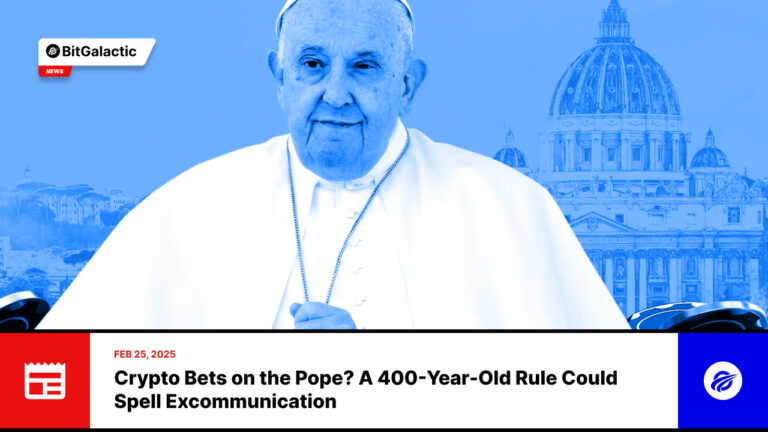Crypto Bets on the Pope? A 400-Year-Old Rule Could Spell Excommunication.
In a twist that blends history, religion, and decentralized finance, gamblers on the blockchain-powered betting platform Polymarket are speculating on the future of Pope Francis. But while placing bets on papal affairs may seem like just another market trend, a 16th-century church law once made such wagers grounds for excommunication.
Betting on the Pope—A Crypto Controversy
As Pope Francis, now 88, extends his hospital stay into a second week, Polymarket users have collectively wagered nearly $200,000 on whether the Vatican will see a new pope in 2025. A staggering 79% believe the answer is yes. Another market asks, “Will Pope Francis step down before July?” with 18% predicting his resignation.
This isn’t the first time Polymarket has come under scrutiny for controversial bets. In 2023, the platform allowed users to wager on the fate of the ill-fated Titan submersible, drawing criticism for profiting from real-life tragedies.
The 1591 Papal Gambling Ban
Gambling has been ingrained in human history for millennia, and the Catholic Church has long battled against its presence in sacred matters. In 1591, Pope Gregory XIV took decisive action against the rampant betting on papal health and elections. His decree declared that gambling on such topics was sacrilegious and carried the ultimate penalty—excommunication.
One historian notes that as early as 1584, Roman bookies accepted wagers on whether Pope Gregory XIII would visit Bologna during his illness, stirring anxieties within the clergy and even the Spanish monarchy. Gregory XIV condemned the practice, stating that it mixed sacred affairs with the corrupting forces of money, turning the spiritual into a market spectacle.
Does the Rule Still Apply Today?
Modern-day Catholic bettors, however, may not need to worry about eternal banishment. According to uCatholic, a website dedicated to Catholic teachings, the gambling ban was officially removed in 1918 with revisions to canon law. Today, excommunication is reserved for serious offenses such as heresy, sacramental violations, and acts of violence against the pope. As far as church law is concerned, betting on a papal resignation or succession is no longer a punishable sin.
BitGalactic’s Take: Speculation or a Sign of Market Sentiment?
From a crypto-investment perspective, this trend underscores how blockchain technology is revolutionizing betting markets, allowing users to wager on global events with decentralized liquidity pools. While some may find it distasteful, others see it as a reflection of market sentiment—where traders are simply applying predictive analysis to world affairs.
Polymarket’s role in this raises ethical questions: Should blockchain betting platforms draw a line when it comes to wagering on sensitive matters? Or does this kind of speculation simply reinforce the decentralized nature of crypto markets, where no topic is off-limits?
For now, Pope Francis has called for prayers, not wagers. But with the market’s appetite for high-stakes speculation, it seems like betting on the Vatican remains as much a game of chance as it was 400 years ago.
Share this post


